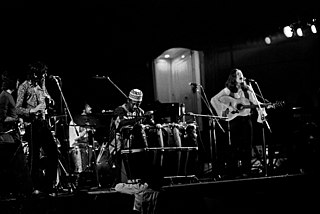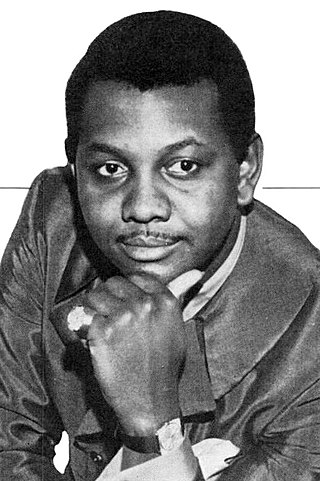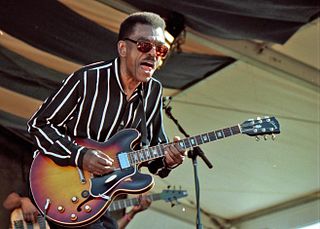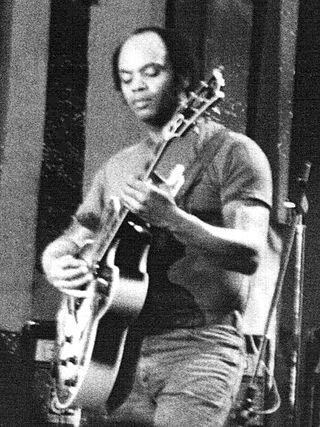
Patricia Louise Holte, known professionally as Patti LaBelle, is an American R&B singer and actress. She has been referred to as the "Godmother of Soul".

The Exciters were an American pop music group of the 1960s. They were originally a girl group, with one male member being added afterwards. At the height of their popularity the group consisted of lead singer Brenda Reid, Herb Rooney, Carolyn Johnson and Lillian Walker.
Chicago soul is a style of soul music that arose during the 1960s in Chicago. Along with Detroit, the home of Motown, and Memphis, with its hard-edged, gritty performers, Chicago and the Chicago soul style helped spur the album-oriented soul revolution of the early 1970s.

June Deniece Williams is an American singer. She has been described as "one of the great soul voices" by the BBC. She is best known for the songs "Free", "Silly", "It's Gonna Take a Miracle" and two Billboard Hot 100 No.1 singles "Let's Hear It for the Boy" and "Too Much, Too Little, Too Late". Williams has won four Grammys with twelve nominations altogether. She is also known for recording “Without Us”, the theme song of Family Ties.

David Hood is an American musician, hailing from Muscle Shoals, Alabama, He is known for playing the bass guitar and trombone, and is a member of the Alabama Music Hall of Fame.

Tyrone Davis, was an American blues and soul singer with a long list of hit records over more than 20 years. Davis had three number 1 hits on the Billboard R&B chart: "Can I Change My Mind" (1968), "Turn Back the Hands of Time" (1970), and "Turning Point" (1975).

Curtom Records was a record label founded by Curtis Mayfield and Eddie Thomas in March 1968 as an independently distributed music label. It was located at 8541 South Stony Island Boulevard. The name of the label came from a hybrid of the names "Curtis" and "Thomas". Prior to Curtom, Mayfield had started two other labels: Windy C and Mayfield which both had closed down. The company's motto was "We're a Winner", taken from one the hit songs from Mayfield's group The Impressions released by ABC Records. At the inception, Mayfield was the company principal producer and A&R person. Other staff included Johnny Pate and Donny Hathaway. Pate left in 1972. Most of the artists on Curtom did not write their own music, which lead to the studio producers such as LeRoy Hutson, Lowrell Simon, Ed Townsend, Gil Askey and Marvin Yanch and Chuck Jackson to produce and write music. The first release on Curtom was This Is My Country released in 1968.

Barbara Jean Acklin was an American soul singer and songwriter, who was most successful in the 1960s and 1970s. Her biggest hit as a singer was "Love Makes a Woman" (1968). As a songwriter, she is best known for co-writing the multi-million-selling "Have You Seen Her" (1971) with Eugene Record, lead singer of the Chi-Lites.

Sylvester Johnson was an American blues and soul singer, musician, songwriter and record producer. His most successful records included "Different Strokes" (1967), "Is It Because I'm Black" (1969) later covered by reggae artists Ken Boothe and Delroy Wilson, and "Take Me to the River" (1975), covered by Al Green and Talking Heads.

Eric Gale was an American jazz and jazz fusion guitarist.

Roger G. Hawkins was an American drummer best known for playing as part of the studio backing band known as the Muscle Shoals Rhythm Section of Alabama. Rolling Stone ranked Hawkins number 31 on its list of greatest drummers.

Richard Edward Tee was an American jazz fusion pianist, studio musician, singer and arranger, who had several hundred studio credits and played on such notable hits as "I'll Be Sweeter Tomorrow " (1967), "Until You Come Back To Me" (1974), "The Hustle" (1975), "Slip Slidin' Away" (1977), "Just the Two of Us" (1981), "Tell Her About It" (1983), and "In Your Eyes" (1986).
Young-Holt Unlimited, were a U.S. soul and jazz instrumental musical ensemble from Chicago, Illinois, United States.
Garland Green is an American soul singer and pianist.

Charles Louis Domanico was an American jazz bassist who played double bass and bass guitar on the West Coast jazz scene.

Otis Lee Clay was an American R&B and soul singer, who started in gospel music. In 2013, Clay was inducted to the Blues Hall of Fame.
Táta Vega is an American vocalist, whose career spans theater, film, and a variety of musical genres.
Johnnie Mae Matthews was an American blues and R&B singer, songwriter, and record producer from Bessemer, Alabama. Known as the "Godmother of Detroit Soul" and as the first African American female to own and operate her own record label she was an early influence on the careers of many of the now-famous recording stars who began their careers in Detroit, Michigan such as Otis Williams, David Ruffin, and Richard Street of The Temptations, Jimmy Ruffin, Joe Hunter of the Funk Brothers Band, Richard Wylie, Norman Whitfield, Berry Gordy, founder of Motown Records, Timmy Shaw, Barbara Lewis, Bettye LaVette and many more.

Walter Jackson was an American soul ballad singer who had a string of hits on the US R&B chart between the mid-1960s and early 1980s. His biggest successes included "It's All Over" in 1964, "It's An Uphill Climb to the Bottom" in 1966 and "Feelings", a cover of the Morris Albert pop hit, in 1976.

Isaac "Redd" Holt was an American jazz and soul music drummer. He was the drummer on the album The In Crowd which earned the Ramsey Lewis Trio critical praise and the 1965 Grammy Award for Best Jazz Performance.














